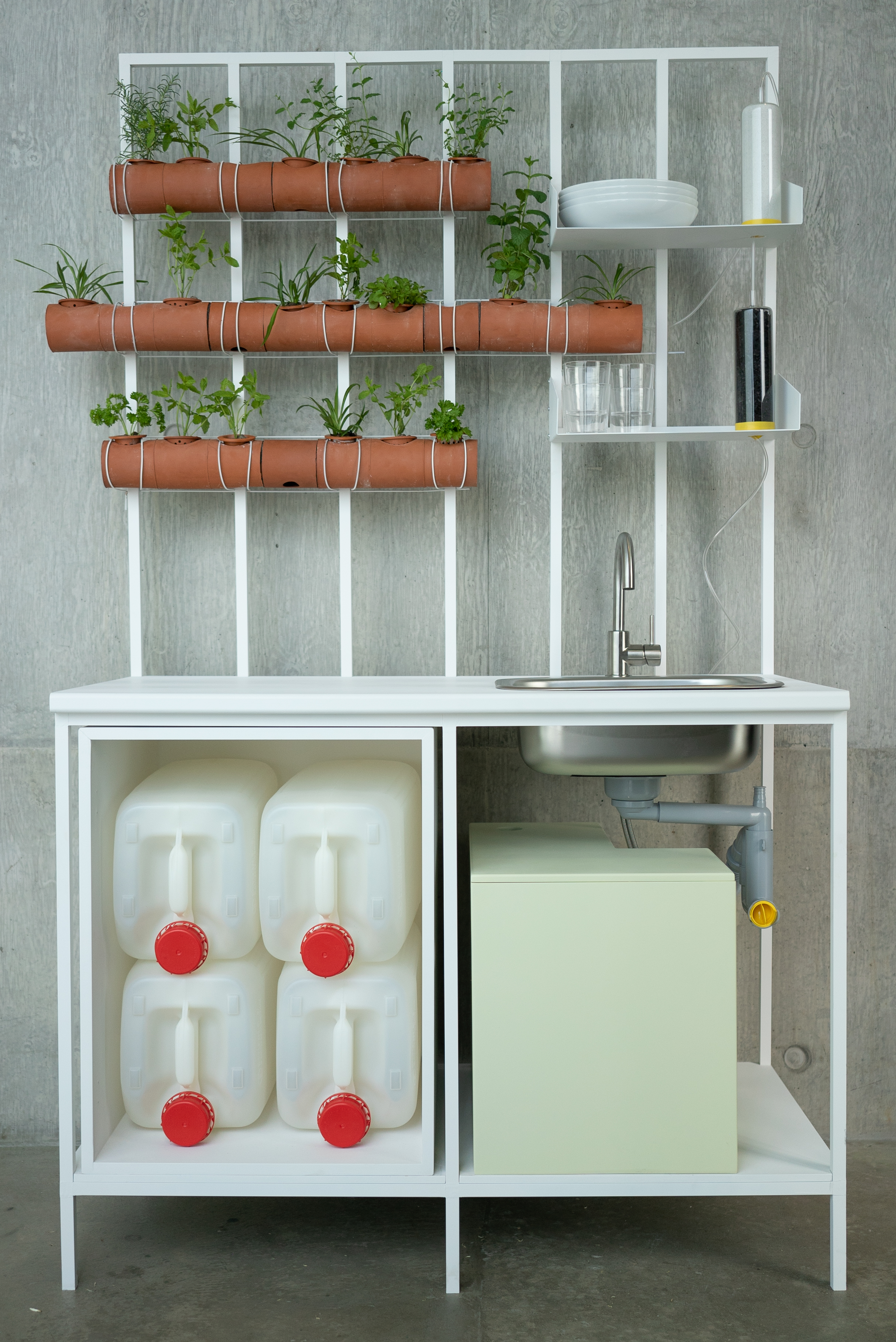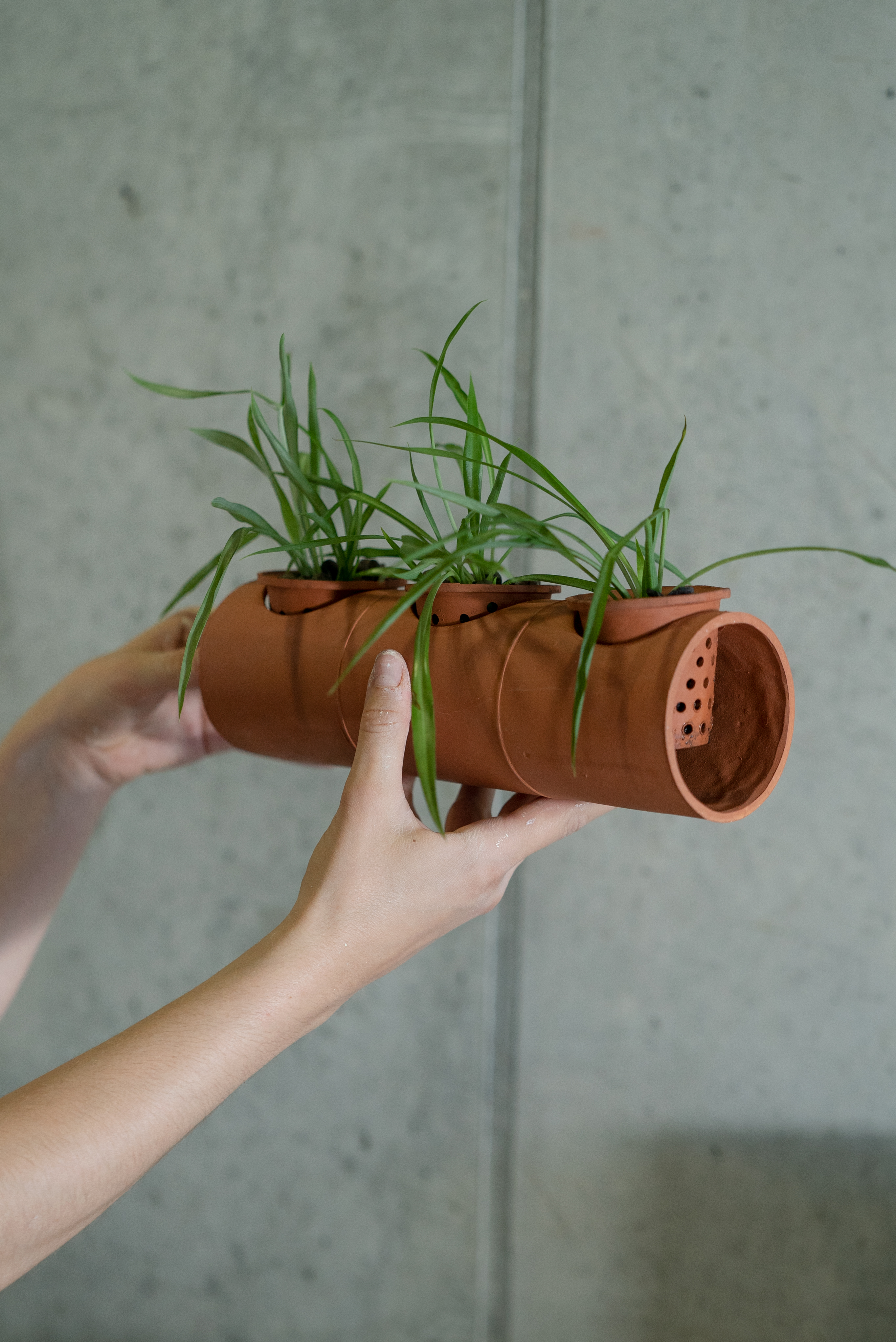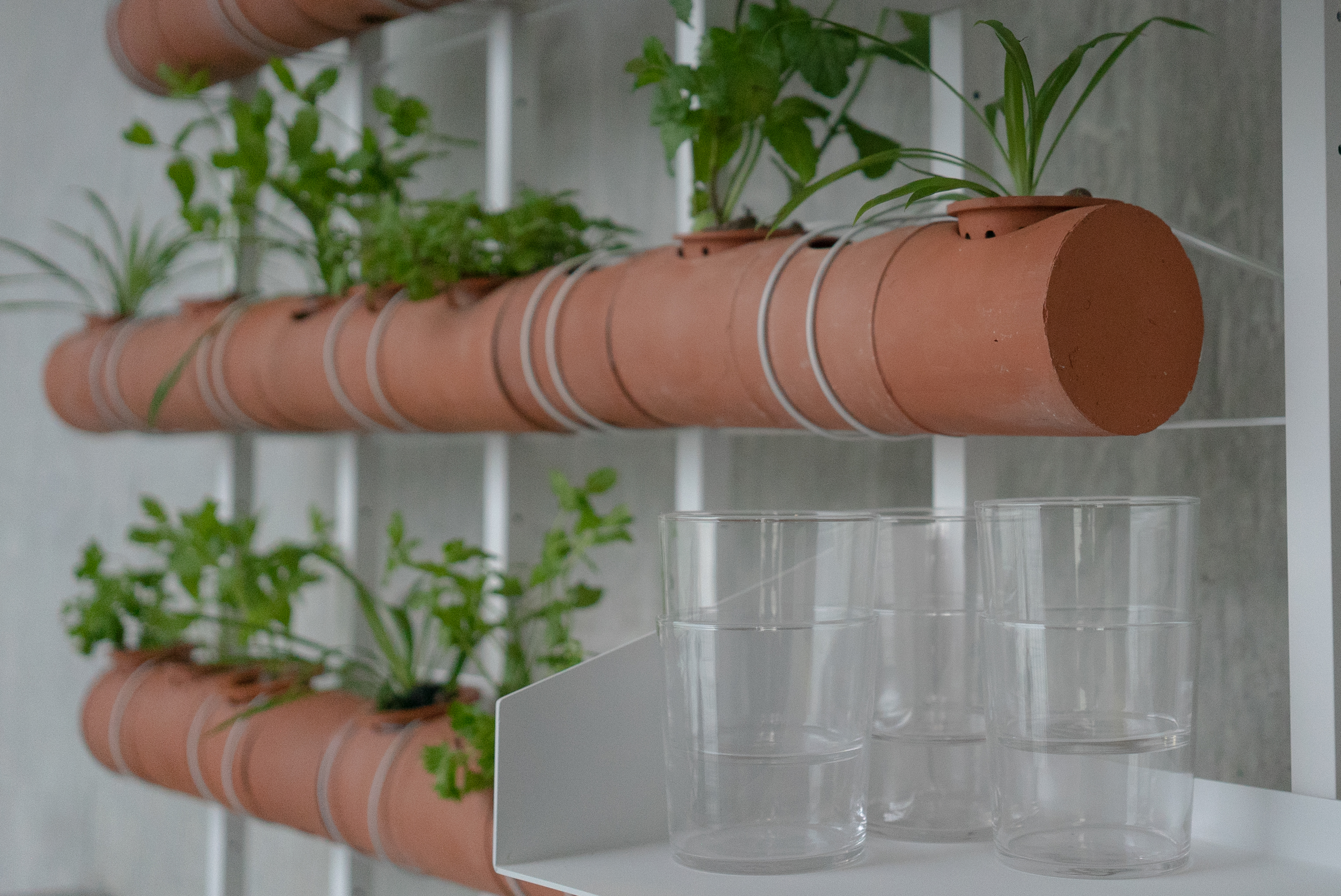Acqua Dentro | MA Material Futures, Central Saint Martins | London | Group Exhibition | 2021
By 2050, the UK faces water scarcity and rising sea levels due to human activity.
Produced whilst on the MA Material Futures, Aqua Dentro offers a proactive solution: integrating domestic water recycling into UK homes. This greywater filtration system explores purifying wastewater using local resources and plants. This approach could cut household water consumption by over 80%, challenging waste perceptions and promoting sustainability.
Produced whilst on the MA Material Futures, Aqua Dentro offers a proactive solution: integrating domestic water recycling into UK homes. This greywater filtration system explores purifying wastewater using local resources and plants. This approach could cut household water consumption by over 80%, challenging waste perceptions and promoting sustainability.
Components (Henaff, M. 2020)
By 2050 the UK will be suffering from serious water shortages alongside sea level rise, both contributing to widespread ecosystem destruction. These phenomena are explicitly linked and largely anthropogenic. Governments are beginning to cotton on to our impending water crisis and as a result expensive and energy-intensive desalination plants are being built world-wide, aiming to meet the urgent need for reliable fresh water.
Grassroots water recycling initiatives usually take place in countries where water is scarce and intervention is urgent. In the UK too much water is often the concern. As it increases and encroaches on our living spaces, our first reaction is to block it. Aqua Dentro suggests a not-so-distant future where incorporating domestic water recycling allows for regulated consumption, disposal and reclamation of this finite resource.
Acqua Dentro is proactively exploring a greywater filtration system, using localised production, materials and plants to reimagine the future of our domestic spaces. The greywater entering the system is channelled through a range of biological filters which use naturally occurring microorganisms to degrade wastewater contaminates, before being purified to drinking water standards. The plants used to filter the water have multiple applications including cooking, cleaning and air purification. This process invites us to address how we use water, what we put into it, and our day-to-day water habits.
This regenerative system is a vision which could result in households reducing their fresh water intake by more than 80% of the 143 litres we use per person daily in drier parts of the UK, and even more in more rain prone areas. The success of this project relies on re-evaluating our perceptions of waste and beginning to welcome these processes into our everyday rituals. Challenging the way waste water is perceived could curb the impending water crisis predicted during this century.
Catching, channelling and storing rainwater has been essential for communities for thousands of years ... Now we largely let this “free” resource flow away.
Withers, J. (2018) Where Will the Water Come From: One Year of Water Futures.
Withers, J. (2018) Where Will the Water Come From: One Year of Water Futures.


Critical Text

